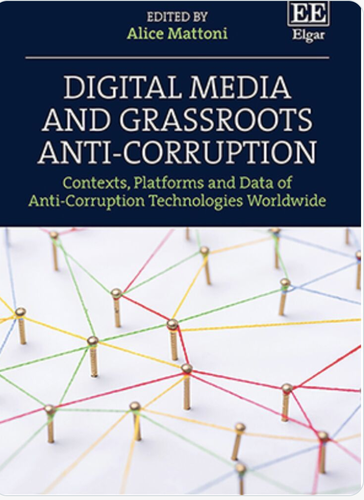Our New Book 'Digital Media and Grassroots Anti-Corruption' is out! Download it for free
Edited by Alice Mattoni, PI of the BIT-ACT project, this edited volume is an open access title
Published on 27 May 2024

The edited volume "Digital Media and Grassroots Anti-Corruption: Contexts, Platforms, and Data of Anti-Corruption Technologies Worldwide" is a reading for anyone interested in the design, creation, and use of digital media and technologies in grassroots anti-corruption efforts.
Just published by Edward Elgar Publishing, this book features chapters written by a remarkable group of contributors.
This open access title is available under the terms of a CC BY-NC-ND 4.0 License, making it free to read, download, and share on Elgaronline.com.
Edited by Alice Mattoni, Principal Investigator of the BIT-ACT project, the book delves into a burgeoning field of research, presenting a wide range of case studies from across the globe. It explores how digital media is employed at the grassroots level to combat corruption.
Mattoni brings together a diverse array of experts to assess the design, creation, and use of various anti-corruption technologies in different countries.
The concept of anti-corruption technologies (ACTs) is introduced to address critical questions about the opportunities and challenges that established and emerging digital media present to practitioners. The chapters, authored by scholars from different fields, explore the contextual nature of these technologies, examining key tools such as anonymous crowdsourcing, collaborative platforms, whistleblowing platforms, and online monitoring of electoral corruption.
The book also provides a critical understanding of the challenges digital media pose to anti-corruption practitioners in various contexts, linking these challenges to different conceptions of democracy.
Comprehensive and empirically grounded, "Digital Media and Grassroots Anti-Corruption" was written to be a resource for students and scholars of corruption studies, digital sociology, law and politics, public policy, regulation and governance, and the study of social movements. It will also be vital reading for anti-corruption practitioners and policymakers interested in the work of civil society organizations at the grassroots level.